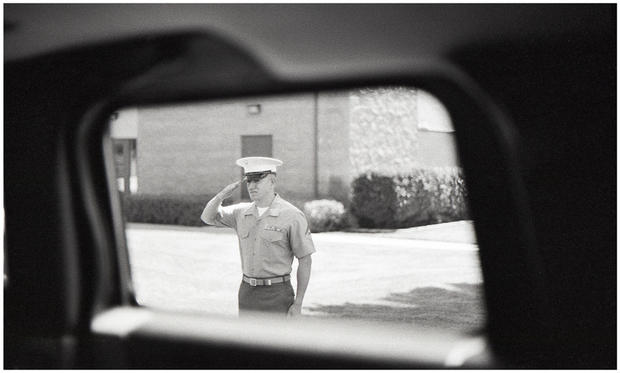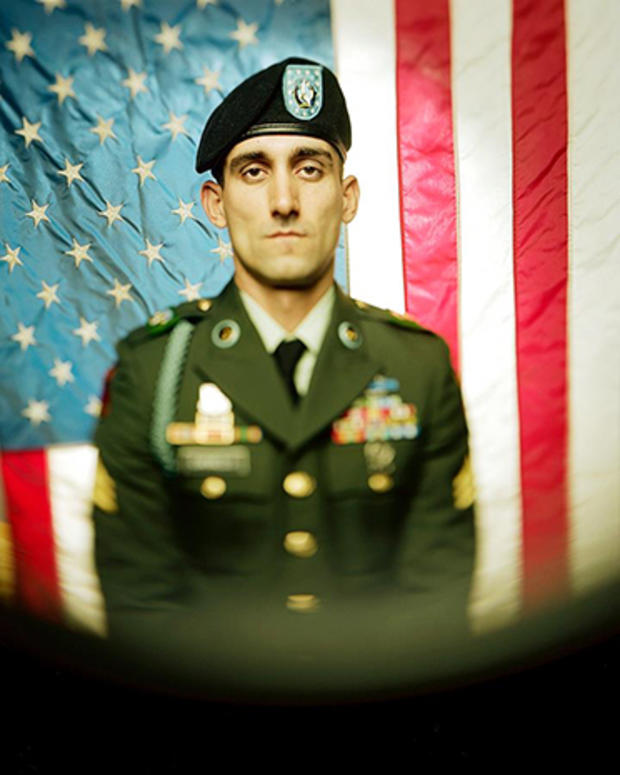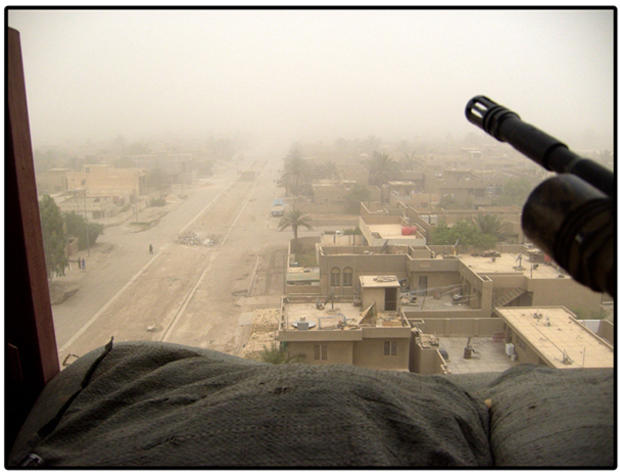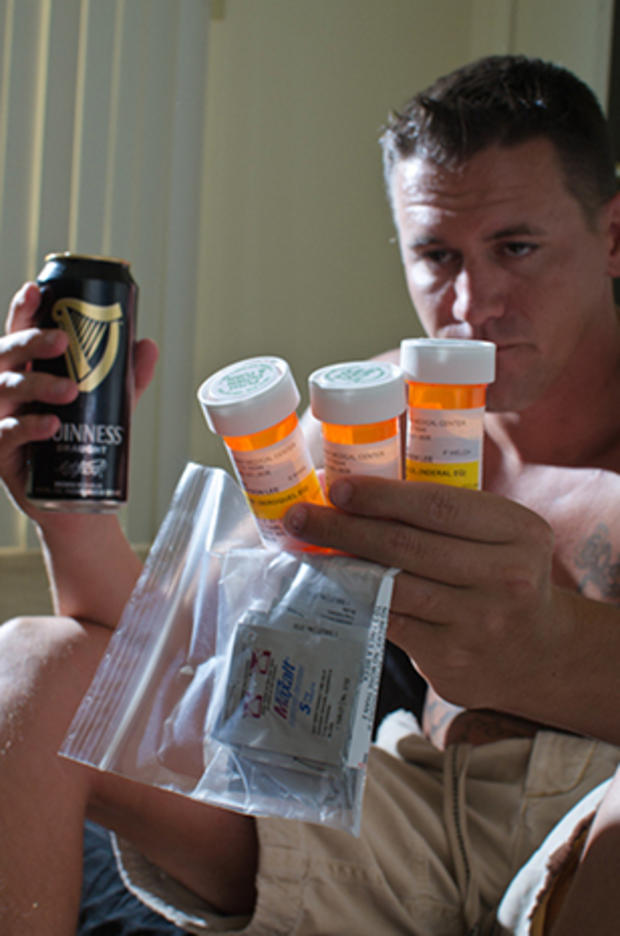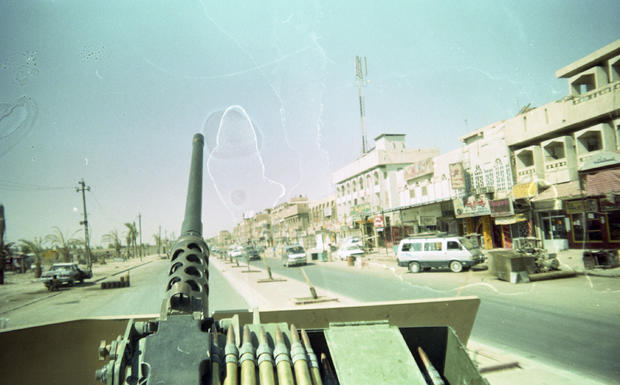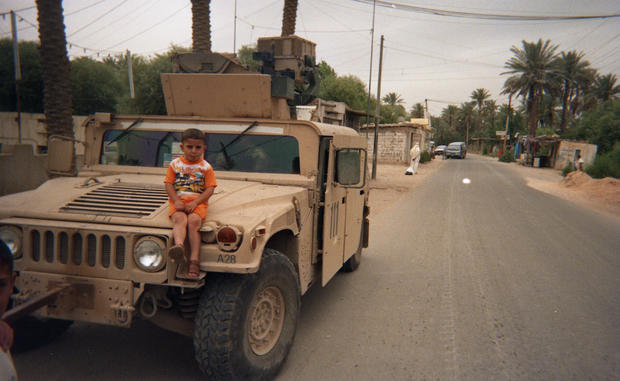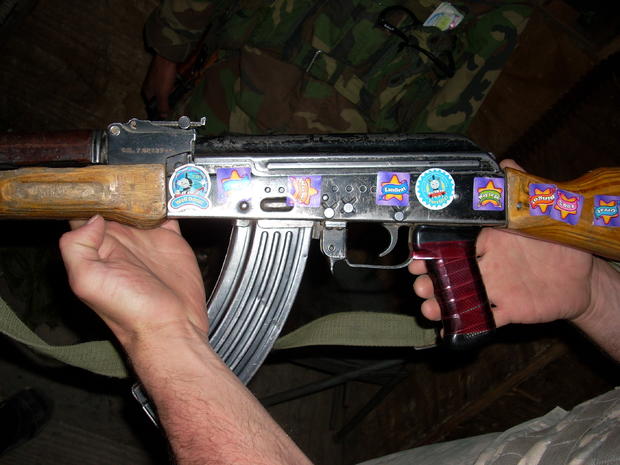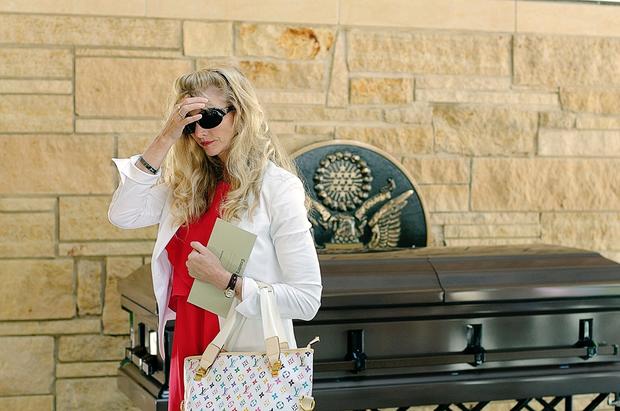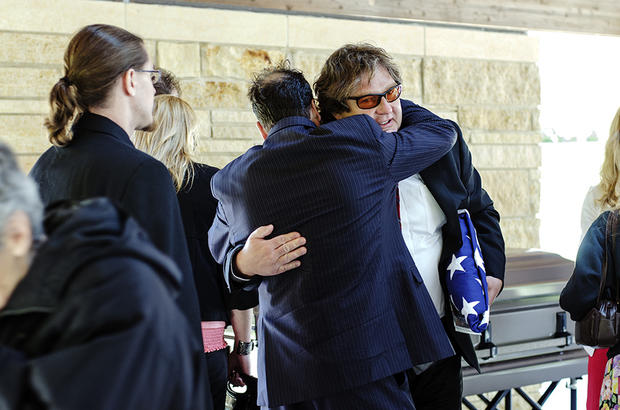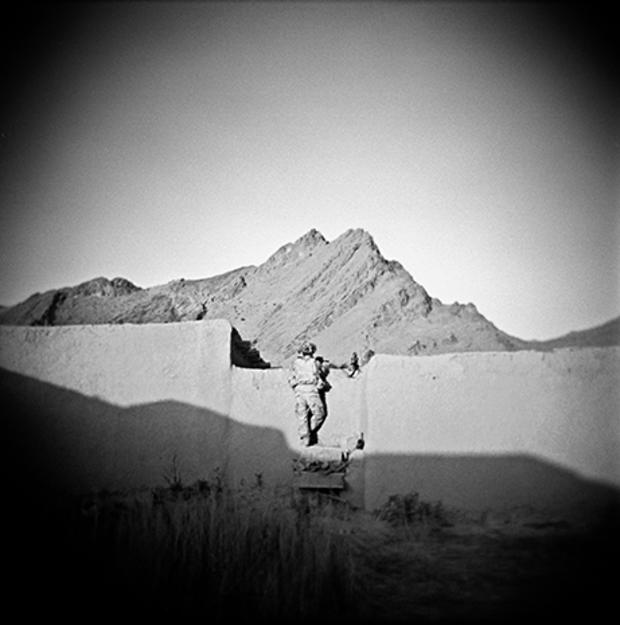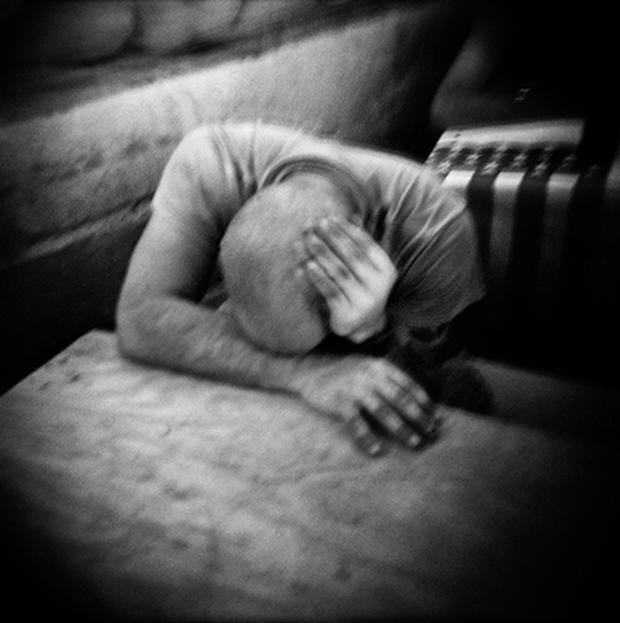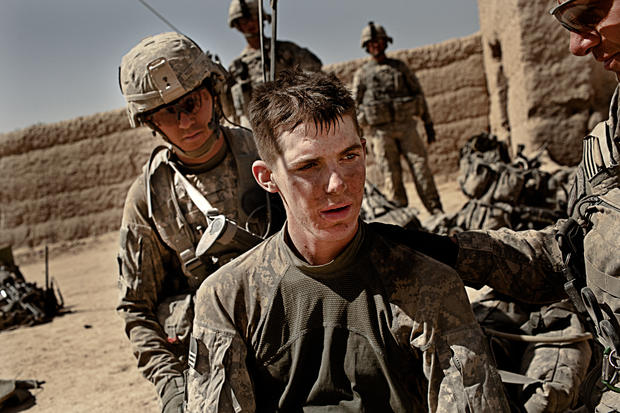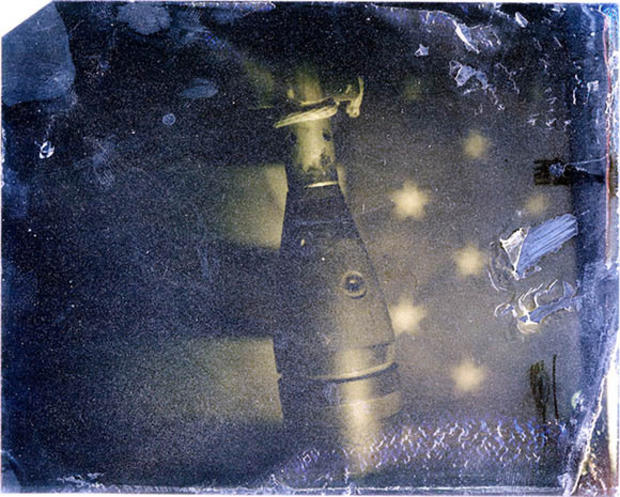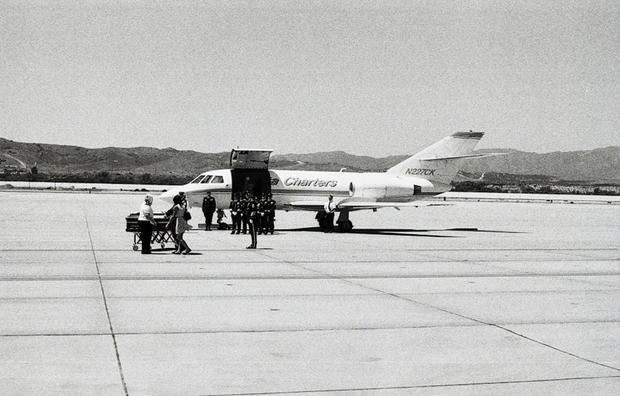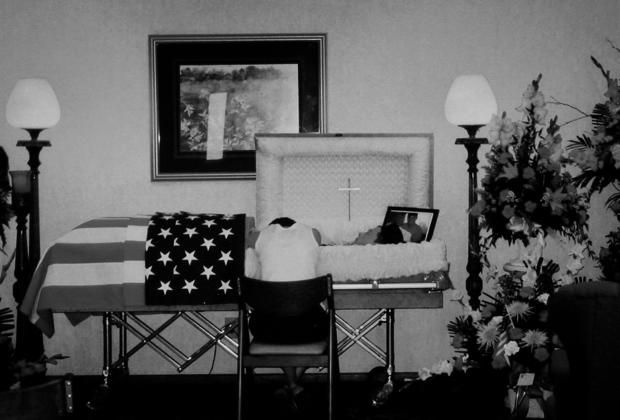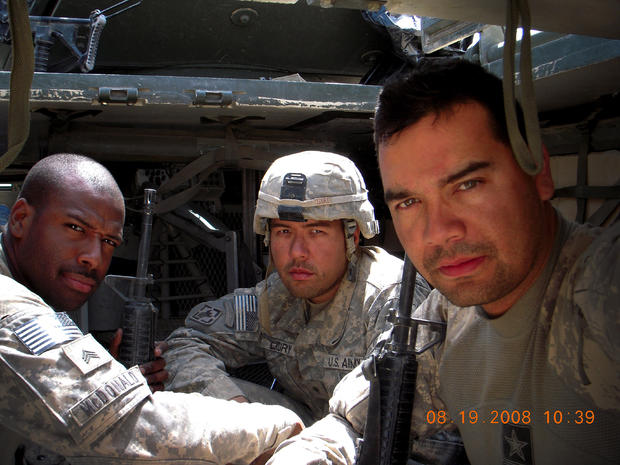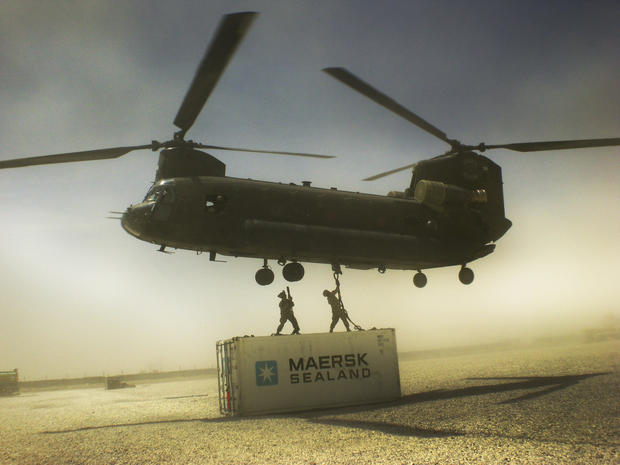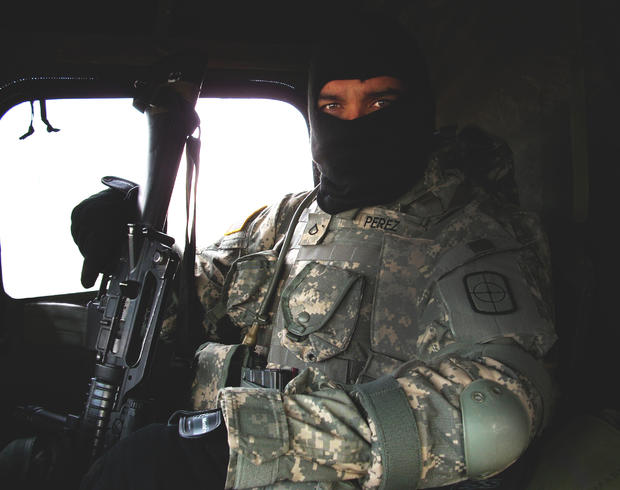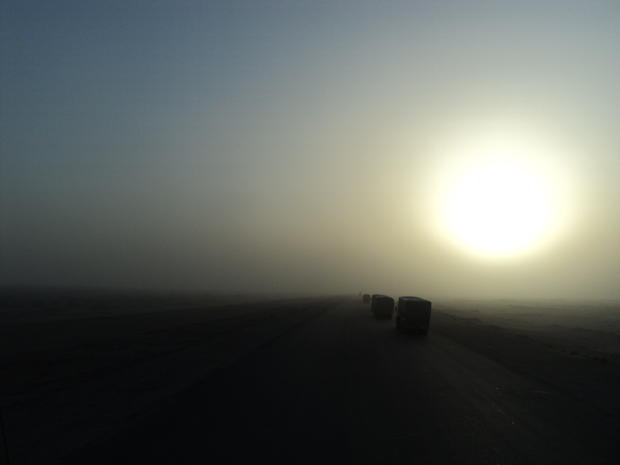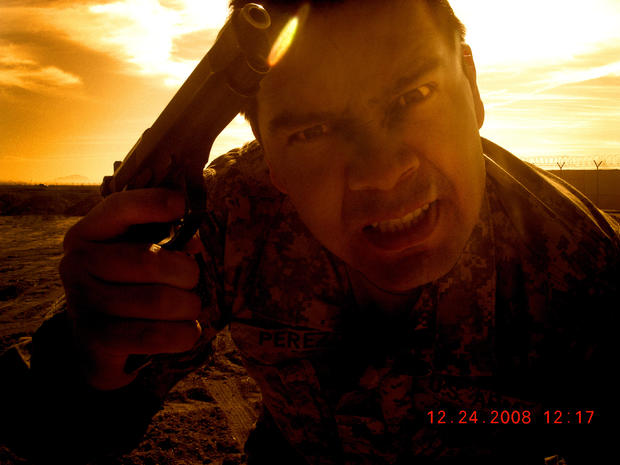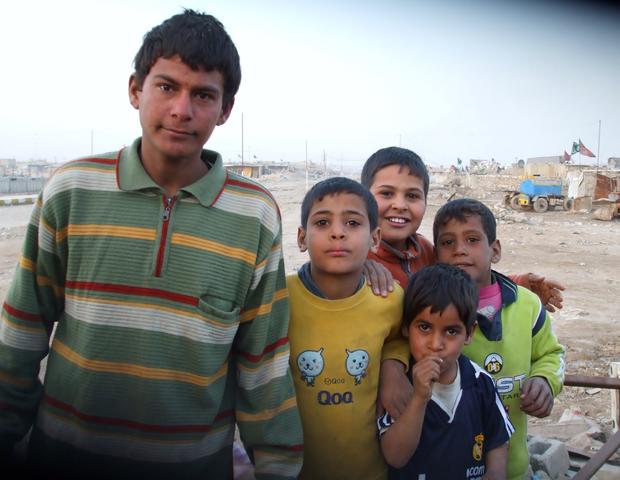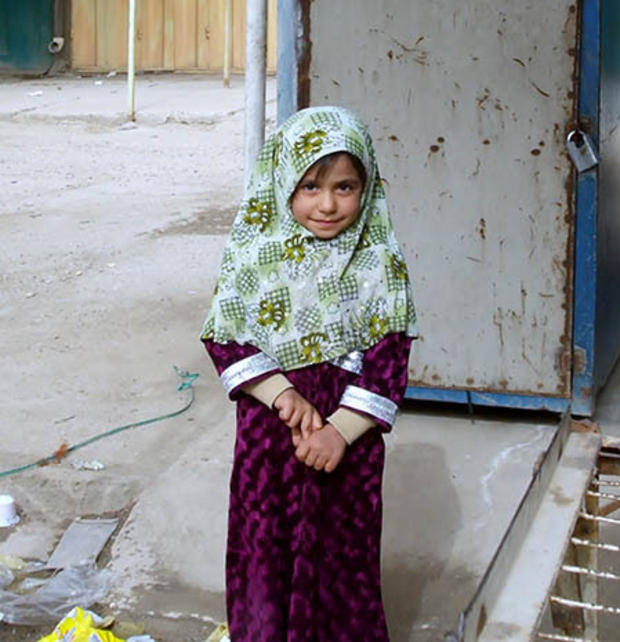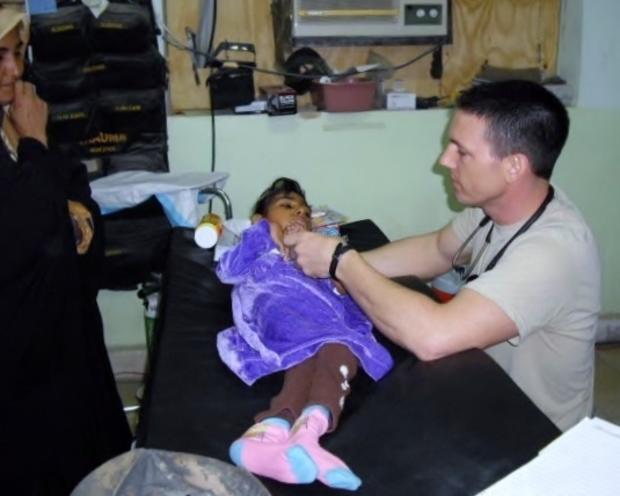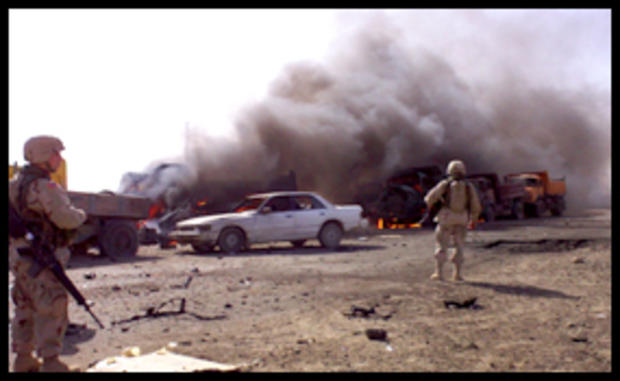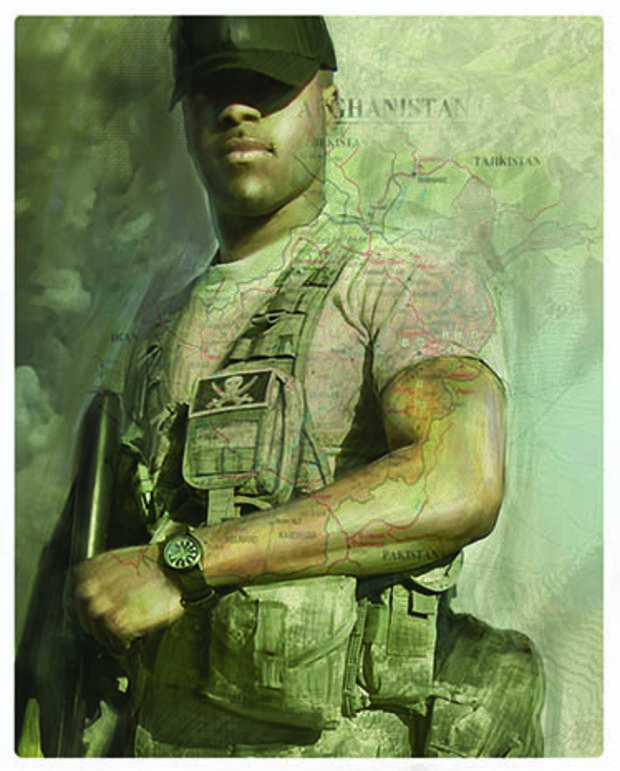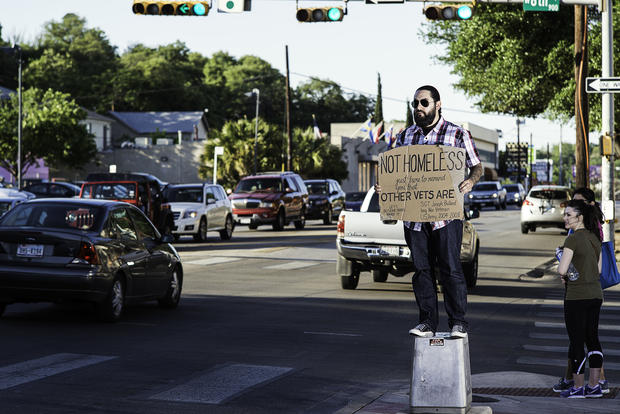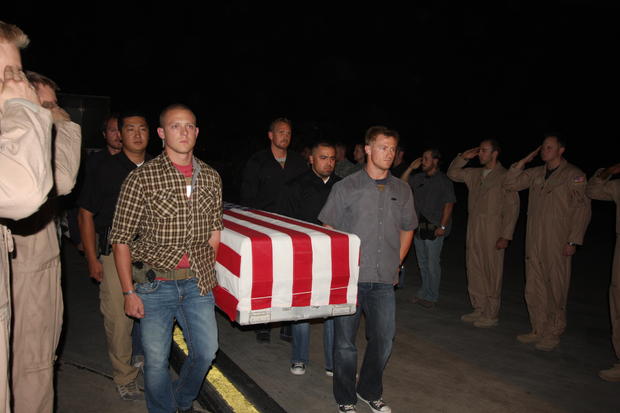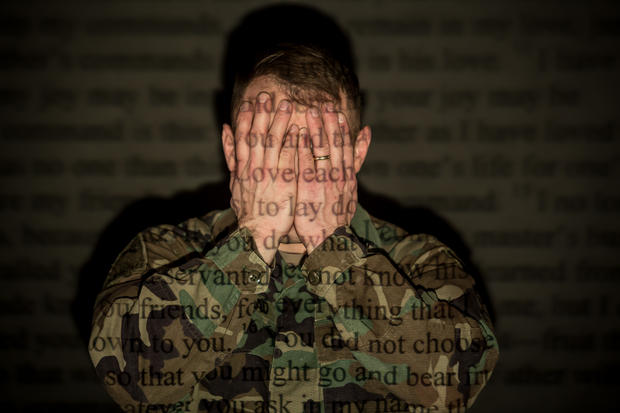War and homecoming through veterans' eyes
This image, taken by Army veteran and photographer, Andrew W. Nunn, was included in an exhibition by The Homecoming Project, which has recruited both veteran photographers and professional photojournalists to share their images of military service and its aftermath. The organization, founded by photographer Erin Trieb, brings awareness to veterans' issues through the use of photography and other visual storytelling. Trieb started the project after documenting the experience of service members in Afghanistan and at Ft. Drum in New York.
Most recently, The Homecoming Project has partnered with StoryCorps for their "Military Voices Initiative." Learn more about the project's latest work on theirKickstarter page.
Click on to see more images created by Trieb and the veterans that have been featured by The Homecoming Project.
"I Served with Johnny in A Company 1/6 Infantry from 2007 until 2010. He is one of the most committed human beings that I have ever met, and his dedication to service was humbling to me."
"Deployments to Iraq for enlisted soldiers generally involve spending a considerable amount of time on guard. Patrol Base Texas was easily the tallest building with any structural integrity left, and the views from the top of the building were interesting to say the least. Often I would find myself looking into the courtyards surrounding the patrol base, and getting glimpses of what Iraqi life was like."
"Getting out of the Army while battling PTSD is a terrifying thing, and more often than not, soldiers with PTSD are not psychologically, socially, or financially prepared to move into a life where being a soldier is simply not acceptable."
"I was on the gun for the majority of my first tour, and a lot of the pictures I took that year were from the turret of a truck. This was a typical day patrolling. The film was damaged due to the heat at the time; it was around 135 F most days that time of year. One day it got up to 145 F."
"We used to patrol the neighborhoods and villages north of Baghdad and the LT would rub elbows and have tea with the sheikhs. One day we were minding the trucks, having tea and talking to people and the kid's dad had put him on the hood of the truck. I took this shot with a disposable camera."
"I took this photo because I was shocked to see the 'Good Job' stickers on an AK-47. I quickly started questioning how horrible it would be to die from that weapon. I thought it was a sick joke, and it saddened me that this whole war was taking place."
"Burying Scott Zaur was one of the hardest things that I have ever done. Scott never complained about being a machine gunner, he just did it. After we came home from Sadr City … he told me that he was having a lot of trouble sleeping. Scott, however, wasn't the kind of guy to show weakness, so instead he sought drugs and alcohol.
At Scott's funeral, his mother Nancy spoke the lyrics to 'Forever Young' by Alphaville, which she and Scott would sing to in the car when he was a child."
"Scott killing himself made me feel like we (veterans) were all still at war. In a lot of ways we are, and always will be."
"Eric was my best friend. I led, trained, and mentored him before his first, and my final deployment, to Sadr City, Iraq. We had made plans to hang out, catch up, and celebrate his survival through another deployment. Just a few hours after calling home, to let his wife and mother know that he would not be coming home as soon as expected, he was struck down in a mortar attack."
Noah Pierce completed two tours of duty in Iraq and came home with severe PTSD. His symptoms went untreated by the VA, and on July 25, 2007, Noah drove to his favorite hangout in the woods, wedged his dog tag between his temple and pistol and shot himself.
"My name is Cheryl and my son Noah is in this coffin. I hope just one person will see [this photo] and it will make a difference in their lives. Maybe another son will see his mother in my place and never make her walk in my shoes.
Noah died by suicide July 26, 2007. He is dead because he suffered Post Traumatic Stress Disorder, or PTSD. Left untreated it can, does, and will kill you from the inside out. It did. The reason my son is dead at 23 is because after serving two tours of duty in Iraq with the Army, Noah thought he was a murderer and he couldn't live with the torment his illness put him through. You see, Noah didn't get help for his PTSD, and not because he did not try, or want it, but because it was not UNDERSTOOD and if it was, it was not being acknowledged. I vowed to make a difference."
"My two friends helped me through the war, and through the struggles of adjusting back to civilian life.
It was important for me to document as much as I could through photography. I knew I would think about it all in depth if I made it back home. My friends were willing to sacrifice themselves for my safety, just as I was willing to do the same. The bond between us was and still is strong. I’m grateful every day that I am at home with my family. I know I owe it to them."
"I look back on this photograph as a 'green' soldier who has no idea what he is about to go through. The intense training served me well when it came down to perform under stress."
"Sandstorms of varying degrees were a daily occurrence in the summer in southern Iraq. We were tasked with convoy security so I spent a lot of time on the gun, staring into the most beautiful sunrises and sunsets you've ever seen."
"This was a moment of self-expression. I knew I was changing during my deployment although I didn't know how at the time. I thought the feeling of anger and frustration was important to document for later analysis when I would have the time."
"The poor families within this neighborhood were often the ones paid to move weapons and bomb making components, including setting IED's, for the Mahdi Militia."
"Within the next few days an IED exploded in the same marketplace killing several Iraqi civilians and destroying store fronts. The IED was intended for us as this was a common route we took on our routine patrols of the city. That day we were fortunately called to another location."
This girl was 12-years-old and despite no formal medical care, was in wonderful condition because of the love and attention of her mother. The husband had told his wife that they could no longer care for the girl and her other brothers and sisters. In desperation this mother came to our outpost's forward aid station with tears in her eyes and great hope for an impossible miracle."
The VBIED attack killed over 30 local nationals and injured a dozen U.S. Army personnel.
"I sit many a day, wondering why am I here and others are not. Wondering why that IED didn't go off a second sooner and take me from this place and sadly, at times, even wondering if what I have been through is too much for me to bear and maybe death, even if self inflicted, is the only answer where there can be peace. This is the common battle of the modern veteran."
"During my post-deployment transition, I started to transform my Army photographs with the intention of honoring the service and friendship of my fellow soldiers."
"The concept was inspired by the number of homeless veterans I've spoken to since my separation from the U.S. Army. I thought that it would be impactful for a recently separated veteran to do something to bring awareness to the issue.
Because of my appearance -- tattoos, long hair, beard -- most people are surprised to learn that I served in the military, and I felt that would help drive the message on the sign. I asked a fellow designer, Zachary Horst, to hand-letter the sign and I asked photographer and veteran, Andrew Nunn, to take the photograph because of his passion for bringing awareness to the struggles service members and veterans face on a daily basis." - Joseph Bullard
Joshua Hernandez's final flight home with Honor, Baghdad, Iraq, June 8, 2010.
Hernandez was wounded in an IED explosion during Operation Phantom Fury in Fallujah, Iraq in November 2004, for which he received the Purple Heart. He died on deployment from complications of the shrapnel that he was still carrying in his body.
"I wanted to include the Plato quote, because it's my belief that the war my brothers and I fight will never be over. Death is the only peace for men like us."
